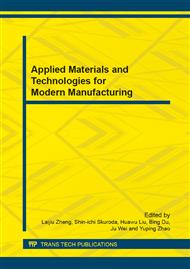p.1823
p.1827
p.1831
p.1837
p.1842
p.1847
p.1853
p.1858
p.1862
The Electric Vehicles Developing in Taiwan-Application of Scenario Analysis
Abstract:
The internal combustion engine vehicles is currently the most important means of transport, but it causes air pollution and rapid decrease in volume of oil reserves and many other issues, therefore, the best choice to reduce carbon emissions is the electric vehicle. Unfortunately, the use of electric vehicles is very uncommon situation now. In this study, We employ scenario analysis of the basic principles and procedures, Let science and technological development, government policies and laws, consumer consciousness, firm behavior and other variables included into consideration, to analyze the possibility of electric vehicles in the future direction of development. And proposes specifically the feasible strategy development suggestion by scenario analysis method, includes: 1. reduce the battery cost; 2. government incentive policy; 3. establish charging stations.
Info:
Periodical:
Pages:
1842-1846
Citation:
Online since:
September 2013
Authors:
Keywords:
Price:
Сopyright:
© 2013 Trans Tech Publications Ltd. All Rights Reserved
Share:
Citation:


